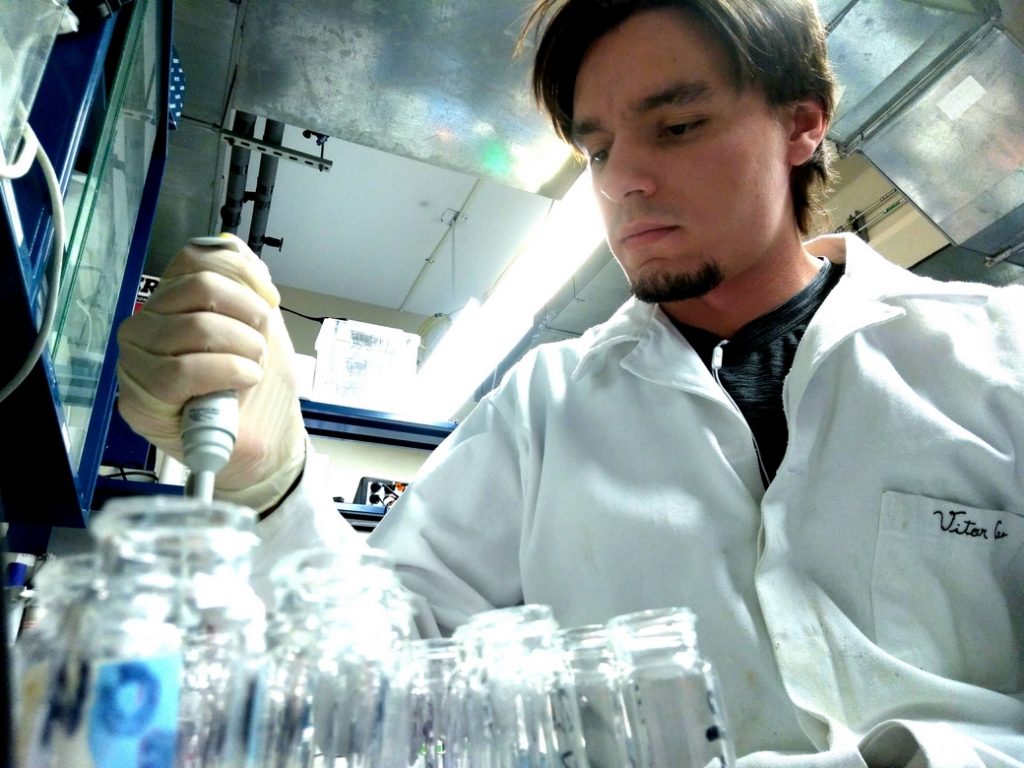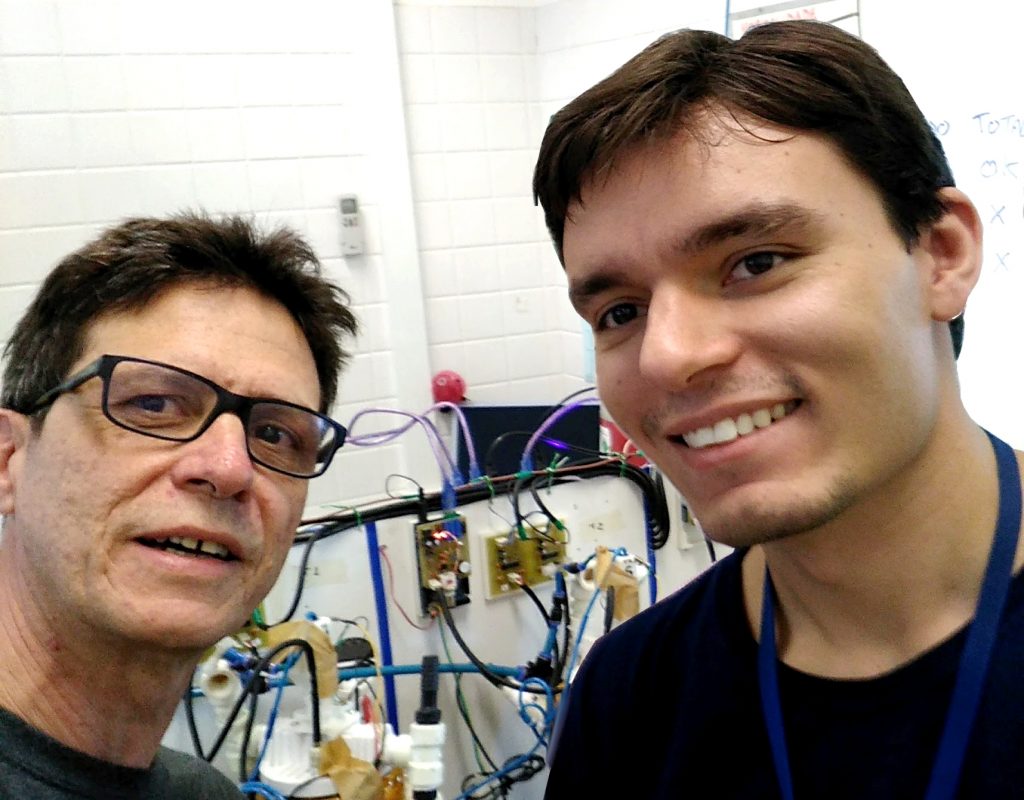Thesis of the Graduate Program in Sustainability wins USP Outstanding Thesis Award – 10th Edition
The thesis “Energy generation in a new microbial fuel cell: characterization and dynamics of microbial communities using organic matter and ammonia as electron donors”, authored by Vitor Cano, developed in the Graduate Program in Sustainability with the guidance of Prof. Dr. Marcelo Antunes Nolasco, won the USP Highlight Thesis Award – 10th Edition in the Great Area – Multidisciplinary.
The research presents a new microbial electrogenerator cell configuration, which was developed to generate energy from agro-industrial effluents. The interdisciplinary approach – combining molecular biology, electrochemistry, biochemistry, chemical engineering and environmental science – applied in research allowed new advances in bioelectrochemical processes that would hardly be obtained in a disciplinary investigation. In terms of application, the project demonstrated a strategy for reducing the total cost of the system without losing performance. In addition, the thesis mainly contributes to the achievement of three Sustainable Development Goals (SDGs): SDG 6 (clean water and sanitation), promoting the availability and sustainable management of water and sanitation for all, as it presents the development of a technology innovative for the treatment of wastewater, having as one of the main objectives to protect water quality by reducing the load of organic matter and nitrogen released into water bodies; SDG 7 (affordable and clean energy), contributing to access to cheap, reliable, sustainable and renewable energy for all, in terms of constant and widely available but still unexplored production: wastewater; and ODS 13 (climate action) contributing to the possibility of using wastewater as a clean energy source, especially in the bioethanol sector and mitigating the release of greenhouse gases in conventional treatment plants or in wastewater discharged in the untreated environment.
The research is the result of an international collaboration with Columbia University, with funding from Capes (doctoral scholarship and the Doctoral Program-Sandwich Abroad – PDSE) and FAPESP (Process 17/24524-0): “Development of a cell prototype microbial fuel for the production of bioelectricity in the treatment of waste”, FAPESP’s Bioenergy Program (BIOEN), for the acquisition of equipment and inputs.
We remind you that the thesis developed by Vitor also received an honorable mention from the CAPES Award for Thesis Edition 2021.
You can read more information about the research in FAPESP’s virtual library.




 Imprimir
Imprimir
